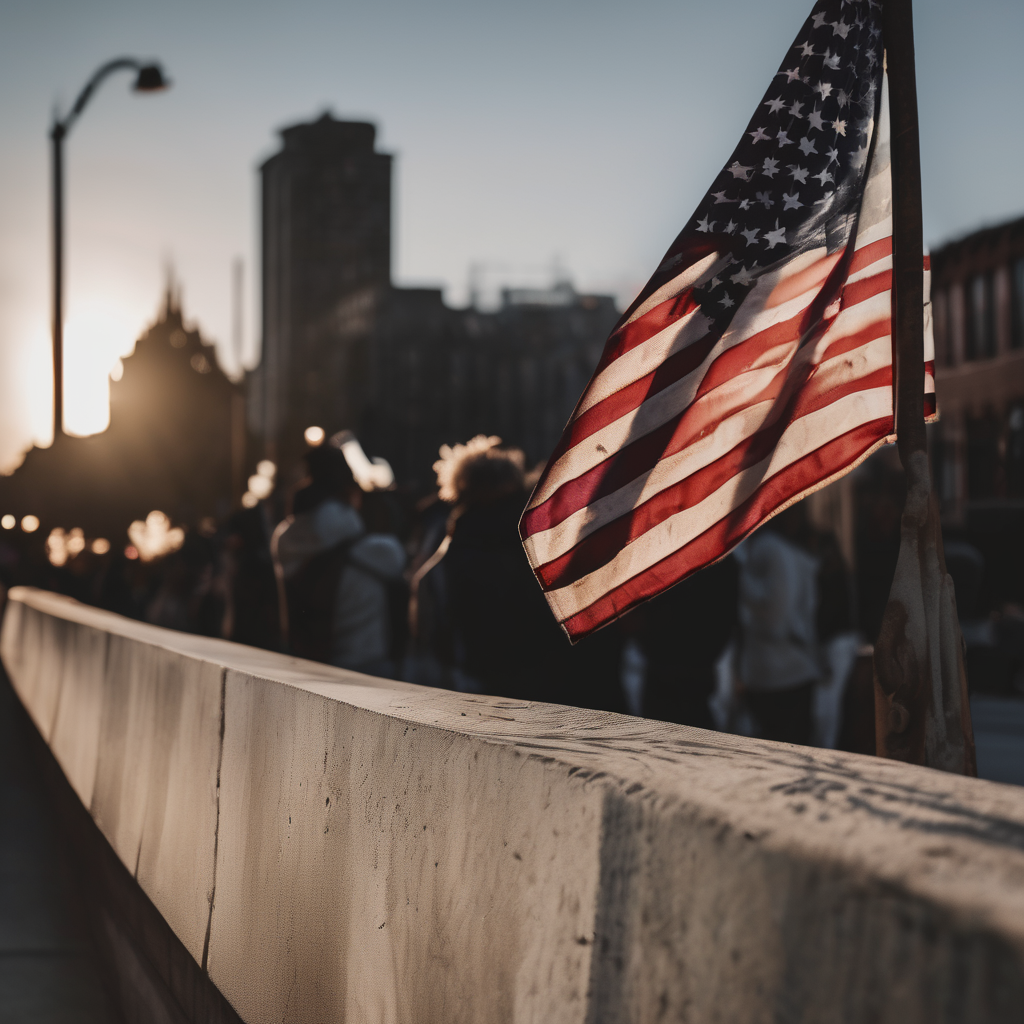On a warm September morning, a small group of protesters gathered outside the Broadview immigration processing center in suburban Chicago, signaling their resistance to the Trump administration’s renewed immigration crackdown known as Operation Midway Blitz. The center, characterized by boarded windows and fences lined with razor wire, has become a focal point for those opposing the government’s harsh measures, including squalid conditions for detainees facing deportation.
Among the protesters were Milagros Pelayo, 22, and her 16-year-old sister Yessenia Garcia, who were there seeking information about their father Rosalio, a janitor recently detained by immigration agents. “They won’t let us talk to him,” Pelayo shared, expressing their disillusionment with the American dream. As they awaited answers, tensions escalated outside the facility, leading to confrontations with immigration agents who resorted to pepper balls and tear gas to disperse the demonstrators.
Chicago stands as one of the few Democratic strongholds where Trump has threatened to deploy military forces amidst claims of rising crime. The city is embroiled in controversies surrounding its safety and has often been portrayed negatively by right-wing media. Notably, the recent murder of Charlie Kirk, a right-wing youth organizer, has further intensified political tensions, as Trump addressed his death while expressing intentions to “save” Chicago from perceived chaos.
While the protest at Broadview highlighted the immediate concerns regarding immigration enforcement, a broader sentiment regarding political violence and free speech emerged. Kat Abughazaleh, a 26-year-old Democratic candidate, voiced her frustration about the Democratic leadership’s response to the escalation of authoritarianism, particularly in immigration policies. Her own experience of being violently shoved by a federal agent at the protest reflected the storm brewing between protesters and law enforcement. Despite facing backlash online, Abughazaleh remained resolute, emphasizing the importance of solidarity among those resisting the government’s oppressive tactics.
Polling trends suggest that public support for Trump’s aggressive agenda is waning. A significant portion of Americans believe Trump has overreached in his attempts to control media organizations and oppose the military’s deployment in cities. In Chicago, community groups have formed informal patrols to protect residents from ICE surveillance, resisting the criminalization of free speech and activism as the administration seeks to intimidate dissenting voices.
The divisive atmosphere echoed at a memorial for Charlie Kirk that drew sizable crowds in Republican-leaning areas. Participants illustrated a collective sense of burgeoning political participation among Trump supporters, who echoed his combative rhetoric. Yet, as storms rolled through Woodstock during the event, they served as a metaphor for the brewing conflict within the nation—an unpredictable climate of political discontent and deepening divisions.
The atmosphere in both the protests and the memorials underscores a pivotal moment in American society, highlighting the urgent need for dialogue and understanding in a time marked by discord and division. Each group—protesters and supporters alike—reflects the complexities of today’s political landscape, where choices made could shape the future of civil liberties and community rights across the nation.
